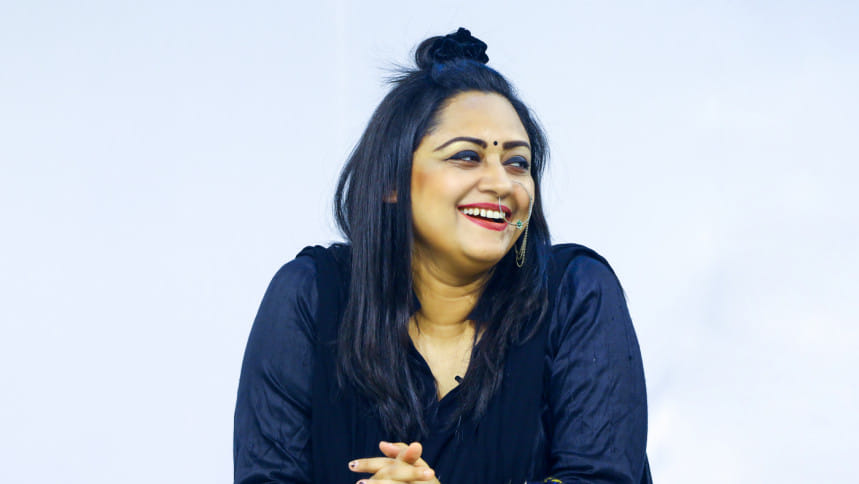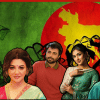‘When I came to Dhaka, I had nothing’

20 years ago, Sharmin Sultana Sumi came to Dhaka from Khulna with very few things to her name. During her time in Dhaka University, the vocalist, along with some talented musicians, would form Chirkutt. Making music her only strength, the band quickly rose to fame with their poetic lyrics and unique compositions, eventually going on to earn international acclaim.
How does it feel that your band, Chirkutt, just celebrated their 20th anniversary?
You know when you reach the peak of a hill, after climbing it for a long time, and it feels that you could now die in peace? Well, that is exactly how I feel right now. I never thought we would complete 20 long years, but here we are. Everyone deserves credit, from the person who used to give us tea every day to the person who patted our backs and motivated us. I am overjoyed that I have been able to do what I love for the last 20 years. Not many people have this type of opportunity.

Looking back, how has your journey been?
In all these years, I have gone through many struggles and hardships. However, one thing I learned is to never complain about these things. Never glorify your struggles. I swallowed every hurdle that life gave me and made it my strength. Sometimes, it was the people closest to us—our friends and fellow musicians—who hurt us the most. However, I forgot those things and moved on. I am grateful to my amazing team, without them, none of this would be possible.

What is it like to be the female vocalist of a leading band?
I don't see myself as a female vocalist in the band. Rather, I see myself as an artiste, irrespective of my gender. It feels great to see girls and women being motivated by my work. When a teenage girl from a village hugs me and tells me that she has been inspired by me after seeing me perform on television, it makes my journey worthwhile. Being able to inspire thousands of women with my work is really beautiful.
When you started Chirkutt, did you think the band would still be here 20 years later?
I never plan for anything. When I started the band, I did it because I felt like it. I have grown up in a musical family, where the craft was my only inspiration. When I came to Dhaka from Khulna, I had almost nothing to my name. When I love something, I feel like an invisible power guides me. So, when I came to Dhaka, I started writing and composing my songs. I didn't even know any musical grammar or have institutional training. But I still started anyway.

As a female artiste, did you ever face any discrimination in the Bangladeshi music industry?
I have faced a lot of challenges as a female artiste in the music industry, but I don't want to glorify myself by talking about them. I am a solutions-based person. Whenever I am hurt and face any hurdles, I try to find the positive side of the problem and make it my inspiration. However, one thing that I always faced was that I had to prove my excellence in every step I took, compared to my male counterparts. As a woman, I always had to prove myself.

 For all latest news, follow The Daily Star's Google News channel.
For all latest news, follow The Daily Star's Google News channel. 








Comments